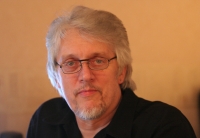
Training Day - Thursday 15 November: Fundraising For Folk.
I wanted to attend this to find out what advice is given to folk events organisers - not only in terms of funds available and form-filling procedures, but also how to approach funding agencies and sponsors and present one's objectives in a way that's meaningful to them. I wasn't disappointed.
The session was led by Wendy Smithers of the hub arts consultancy. She was joined by Polly Robinson, fundraiser for the Bernie Grant Arts Centre, London and Ben Lane, former PRS Foundation funder.
The training day can be distilled to six key messages which are vital for anyone seeking funding. These were:
Topics that were covered were:
- Commercial sponsors: could they offer support either through cash or 'in kind' for a folk music project? For example, a 'media partnership' could involve press or broadcast coverage and free advertising
- Public funding, e.g. Arts Council or National Lottery. Some concern was expressed on the impact of the Olympics on the availability of funds for other, smaller projects.
- Trusts and foundations.
My overall impressions from this training day were very positive; I think all participants felt the same. We even had a chance to work in groups and prepare and pitch a project idea to the other participants. A lot of attention was given to presentation techniques and interpersonal skills - possibly surprising if you consider that a lot of fundraising is form-filling. This did however serve to emphasise a partnership relationship with funders and the need to be clear in one's thinking about project aims and objectives.
The session included advice on how to present a (balanced) budget and also brought home clear messages on accountability and evaluation. This illustrates the broader value of this session as far as my own research was concerned. It demonstrated how enthusiasts of folk arts need to understand and enter into the mindsets of potential funders, i.e. participate in management, commercial or political discourses, in order to achieve the support they need. This may mean re-presenting the argument that you are preserving a vital tradition to one that shows your sponsor tuned in to PR benefits of supporting heritage.
I wanted to attend this to find out what advice is given to folk events organisers - not only in terms of funds available and form-filling procedures, but also how to approach funding agencies and sponsors and present one's objectives in a way that's meaningful to them. I wasn't disappointed.
The session was led by Wendy Smithers of the hub arts consultancy. She was joined by Polly Robinson, fundraiser for the Bernie Grant Arts Centre, London and Ben Lane, former PRS Foundation funder.
The training day can be distilled to six key messages which are vital for anyone seeking funding. These were:
1. Get information across quickly and succinctly
2. Be strategic; have clear objectives
3. Sponsorship is an investment, not a donation. Think of what you can offer in return.
4. Build relationships. Think of potential funders as potential partners.
5. Research. Research. Research. Don't send out 'all-purpose' applications; tailor each one to the interestes of the funder.
6. Show passion.
Topics that were covered were:
- Commercial sponsors: could they offer support either through cash or 'in kind' for a folk music project? For example, a 'media partnership' could involve press or broadcast coverage and free advertising
- Public funding, e.g. Arts Council or National Lottery. Some concern was expressed on the impact of the Olympics on the availability of funds for other, smaller projects.
- Trusts and foundations.
My overall impressions from this training day were very positive; I think all participants felt the same. We even had a chance to work in groups and prepare and pitch a project idea to the other participants. A lot of attention was given to presentation techniques and interpersonal skills - possibly surprising if you consider that a lot of fundraising is form-filling. This did however serve to emphasise a partnership relationship with funders and the need to be clear in one's thinking about project aims and objectives.
The session included advice on how to present a (balanced) budget and also brought home clear messages on accountability and evaluation. This illustrates the broader value of this session as far as my own research was concerned. It demonstrated how enthusiasts of folk arts need to understand and enter into the mindsets of potential funders, i.e. participate in management, commercial or political discourses, in order to achieve the support they need. This may mean re-presenting the argument that you are preserving a vital tradition to one that shows your sponsor tuned in to PR benefits of supporting heritage.
FolkArts England fundraising sponsorship Arts Council National Lottery heritage discourse

No comments:
Post a Comment